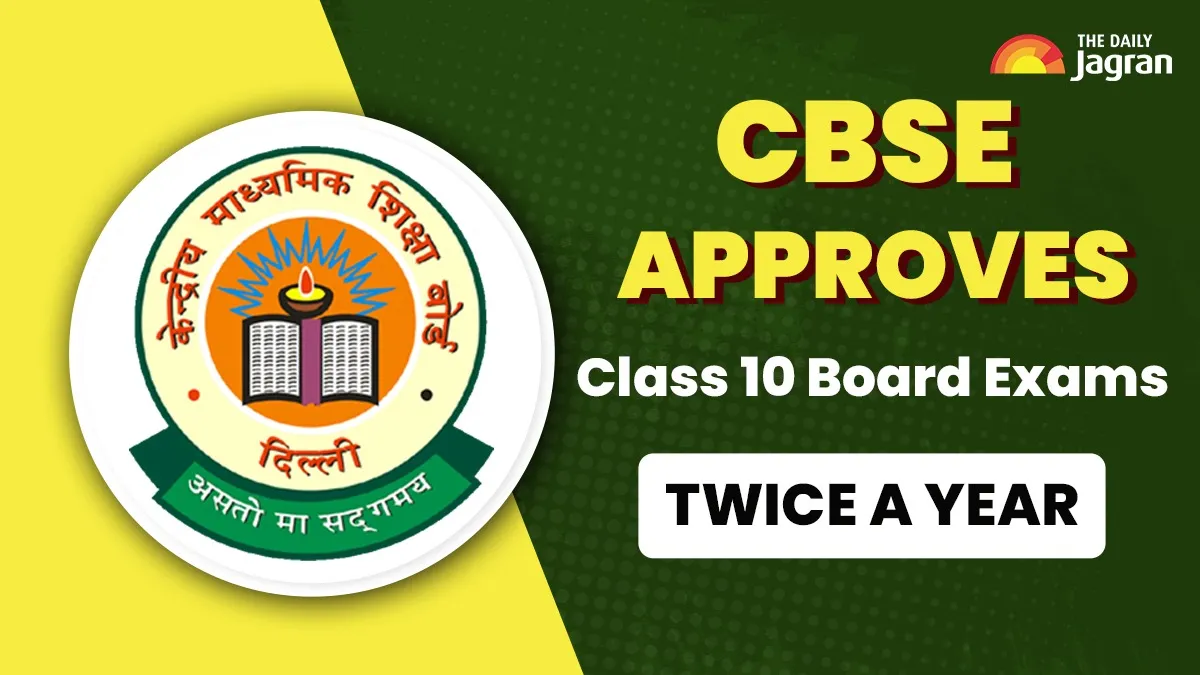- By Sarju Saran Tiwari
- Fri, 27 Jun 2025 12:59 PM (IST)
- Source:JND
CBSE Class 10 board exams: The Central Board of Secondary Education (CBSE) has announced a significant shift in its examination policy: the Class 10 board exams will now be conducted twice a year, beginning with the academic session of 2026. This transformative decision, rooted in the principles of the National Education Policy (NEP) 2020, aims to usher in a more flexible and student-centric learning environment. By offering two opportunities to take the tests—one in February and another in May—CBSE intends to substantially lower the prevalent stress levels among students, allowing them to approach assessments with greater confidence and reduced anxiety.
Under this new framework, students will be granted the flexibility to improve their grades in up to three subjects. Crucially, only the highest score achieved in these attempts will be considered for the final result, empowering students to perform their best without fear of a single-day performance defining their academic future. CBSE officials have clarified that the syllabus, examination pattern, and grading methodology will remain consistent across both sessions, ensuring fairness and standardisation.
While internal assessments will continue to be held once per academic year, the dual board exam system introduces an optional second attempt. This provision is particularly beneficial for students facing unforeseen circumstances such as health complications, significant sports engagements, or personal difficulties during the first examination period. This progressive approach seeks to create a more accommodating and supportive examination ecosystem, aligning with modern educational philosophies.
Reactions from Educational Leaders:
The Central Board of Secondary Education's decision to conduct Class 10 board exams twice a year has evoked diverse responses from school principals across the nation. Educational leaders are weighing the potential benefits against the operational complexities this new model might introduce. The varied opinions highlight the multifaceted implications of such a significant policy change on both students and institutions.
Sangita Gajbhare, Principal of Orchids The International School, Thane Campus, expressed strong support, viewing it as a beneficial move. She emphasized that splitting the curriculum into two terms can reduce pressure by allowing students to focus on smaller portions, thereby fostering better understanding and retention. While acknowledging the increased administrative responsibilities for schools in terms of coordination, evaluation, and management, she believes the academic relief provided to students makes it a welcome step, especially as her school already employs term-wise evaluations.
Concerns and Operational Challenges
Conversely, Mr. Kuriakose V.K., Principal of ST. Thomas School, Indirapuram, voiced reservations regarding the new policy. He critically remarked that "CBSE's new policy of two Board examinations in a year for Class X is like old wine in a new bottle," drawing parallels to existing compartment and improvement exams. His primary concern is that offering more chances might inadvertently foster complacency among below-average students, potentially leading them to postpone diligent preparation for the first examination.
As CBSE progresses towards finalizing the implementation guidelines, schools across India are actively preparing to adapt to this dual-exam model. This transition presents both opportunities for enhanced student performance and operational challenges related to increased exam coordination, evaluation workload, and administration within the academic calendar. The success of this policy will largely depend on its execution and the proactive measures taken by schools to manage these changes effectively.
Official Website: cbse.gov.in

